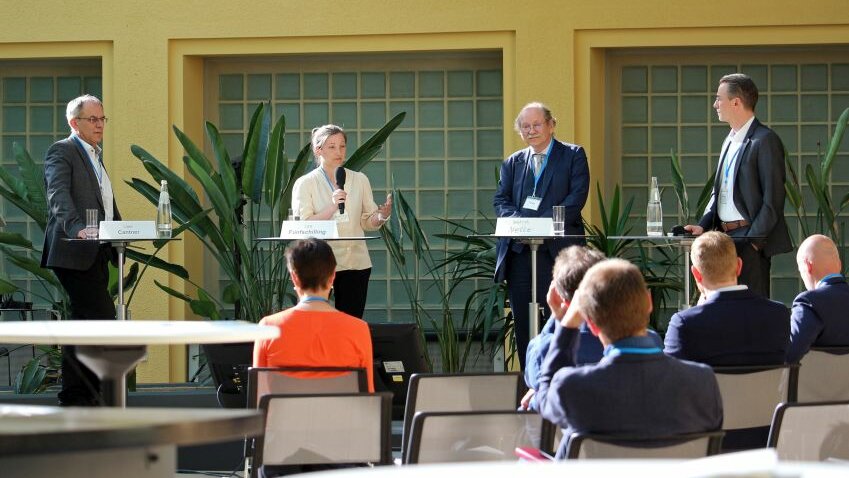How can mission-oriented research and innovation be designed and implemented in a sustainable way? And how can these efforts be coordinated between different actors, across policy fields and levels? These and other questions were the focus of the first international conference of the Leibniz Research Network Knowledge for Sustainable Development.
Missions for sustainability – International conference on opportunities and limitations of mission-oriented research

Systemic innovations are urgently needed to address global sustainability challenges such as the climate crisis. The approach of mission-oriented research and innovation (R&I) promises to address this need: It aims to achieve ambitious and inspiring societal goals through a broad portfolio of inter- and transdisciplinary activities within a given time and resource frame.
Nevertheless, the design and implementation of mission-oriented R&I also raises new questions. In particular with regard to their normativity, possible conflicting goals, appropriate forms of governance, the accountability of actors, and with a view to social learning, it remains to be clarified how "missions" can be designed in a sustainable way.
On May 5 and 6, experts from academia, policy, and civil society discussed these and other questions together in order to critically explore the opportunities, challenges, and limitations of mission-oriented R&I. The conference took place in a hybrid format, combining live lectures at the Leibniz Headquarters in Berlin with a variety of interactive online formats on selected topics and issues. A wide range of application fields and research perspectives were considered - from urban development to the hydrogen economy and bioeconomy to ocean development or historical "missions."
While the first conference day focused on the concept and design of the mission approach, the second day dealt with its practical operationalization. Important impulses for the discussion were provided by the keynote lectures of Dr Lea Fünfschilling (Senior Lecturer at the Centre for Innovation Research, Lund University) and Dr Philippe Larrue (Policy Analyst at the Directorate for Science, Technology and Innovation, OECD). The thematic focus of the conference was also further explored in two panel discussions.
Against the background of the current plans for a further expansion of mission-oriented R&I at European and national level, a number of concrete orientations for the sustainable design of missions were thus identified. As a result of the conference, the Leibniz Research Network Knowledge for Sustainable Development intends to summarize these in a position paper.
More information on the conference
Scientific contact at the IOER
Prof. Dr. Marc Wolfram, e-mail: m.wolfram@ioer.de
About the Leibniz Research Network Knowledge for Sustainable Development
Five institutions of the Leibniz Association have joined forces to form the Leibniz Research Network Knowledge for Sustainable Development. In doing so, they are pooling their expertise to give sustainability sciences greater influence and effectiveness. Every two years, the network organizes an international conference. The aim is to facilitate a dialogue between actors from science, politics and practice in an international and transdisciplinary environment to discuss future orientations for science and politics. The conference on May 5 and 6 marked the start of the conference series.
Further information on the network
![[Translate to English:] Leibniz Gemeinschaft](/fileadmin/user_upload/ioer_de/img/logo-leibniz-gemeinschaft.svg)
![[Translate to English:] Dresden concept](/fileadmin/_processed_/2/1/csm_logo-dresden-concept_430c661ad7.png)

